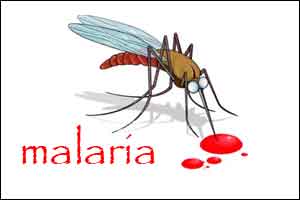- Home
- Editorial
- News
- Practice Guidelines
- Anesthesiology Guidelines
- Cancer Guidelines
- Cardiac Sciences Guidelines
- Critical Care Guidelines
- Dentistry Guidelines
- Dermatology Guidelines
- Diabetes and Endo Guidelines
- Diagnostics Guidelines
- ENT Guidelines
- Featured Practice Guidelines
- Gastroenterology Guidelines
- Geriatrics Guidelines
- Medicine Guidelines
- Nephrology Guidelines
- Neurosciences Guidelines
- Obs and Gynae Guidelines
- Ophthalmology Guidelines
- Orthopaedics Guidelines
- Paediatrics Guidelines
- Psychiatry Guidelines
- Pulmonology Guidelines
- Radiology Guidelines
- Surgery Guidelines
- Urology Guidelines
New 100% effective barrier bednet may help stop Malaria resurgence

According to the Center for Disease Control and Prevention in 2016, an estimated 445,000 people died of malaria, most were young children in sub-Saharan Africa.
There has been a resurgence in malaria since 2015 as typical bednets treated with insecticide have seemingly lost their efficiency due to insecticide resistance in some mosquito species. Initially, the bednets were found effective in reducing transmission and bites from mosquitoes in countries where Malaria was most common.
Researchers at the University of Warwick in collaboration with entomologists at Liverpool School of Tropical Medicine have found that adding a barrier above a bednet can significantly improve the bednet’s performance, reduce the quantity of insecticide while expanding the range of insecticides that can be safely delivered via a bednet. This may improve the efficiency of the traditional bednet method and mathematically predict reductions in clinical malaria.
This was done by developing new imaging systems and discovering new mosquito behaviours leading to the barrier bednet design that is 100% effective, restoring the efficiency of bed nets and protecting from a resurgence of Malaria in Africa.
In the paper ‘Novel bednet design targets malaria vectors and expands the range of usable insecticides’, published today, 2nd December in the Journal Nature Microbiology, the team investigated a simple method to safeguard the role of bednets in malaria control for the future.
Sleeping under a long-lasting insecticidal net is currently the most effective way of preventing malaria in Africa. However, since 2015 these nets have been losing the ability to protect from more resistant mosquitoes carrying malaria.
Professor David Towers, from the School of Engineering at the University of Warwick comments:
“By 2017 an increase of 3.5 million malaria cases in the ten highest burden African countries revealed a serious reversal. Our imaging systems had revealed that mosquitoes tend to bounce across the top of a bednet, probing and attempting to get to the person sleeping beneath it and hence to blood feed.”
From this new understanding, Prof McCall introduced the barrier bednet design – mounted in the bednet roof, the barrier is confined to a spatial region where the insecticide is beyond the reach of children, never touched by the bednet’s occupants and rarely touched by anyone during routine human activity.
Professor David Towers from the School of Engineering at the University of Warwick continues:
“The imaging systems were used to evaluate the barrier net design revealing that contact durations with the barrier are relatively short, less than 20 seconds, but still sufficient to deliver a lethal dose of insecticide. They also revealed that a unique behaviour change in the mosquitoes occurred in the presence of a barrier that may have contributed to its effect and merits further investigation.”
Tested against pyrethroid-resistant malaria vectors in Burkina Faso, bednets with barriers achieved significantly higher killing rates than bednets alone.
“The tracking data fed into a mathematical model of mosquito-barrier interactions and identified other barrier designs that are predicted to further increase the barrier’s performance.”
Professor David Towers, from the School of Engineering at the University of Warwick, continues:
“Minimal change from existing long-lasting insecticidal net processes and behaviour are required to place barrier bednets as an appropriate, safe and affordable method to extend the life of bednets in the fight against malaria in sub-Saharan Africa.”
“In countries such as Burkina Faso in Africa, where malaria incidence has stubbornly remained high despite reductions in many other countries, a control tool such as the barrier bednet offers a realistic, affordable solution to the challenge of insecticide resistance that could be implemented in the short term and help reduce the number of deaths from malaria in affected communities.”
Journal Nature Microbiology
For more details click on the link: https://doi.org/10.1038/s41564-019-0607-2

Disclaimer: This site is primarily intended for healthcare professionals. Any content/information on this website does not replace the advice of medical and/or health professionals and should not be construed as medical/diagnostic advice/endorsement or prescription. Use of this site is subject to our terms of use, privacy policy, advertisement policy. © 2020 Minerva Medical Treatment Pvt Ltd